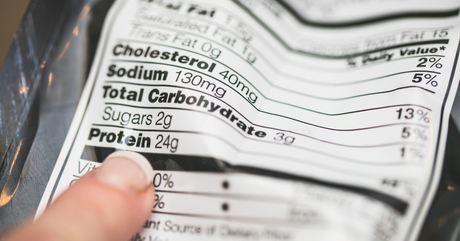If you’re over 40 and love to move—lifting, hiking, pickleball, cycling—you’ve probably felt it:
That one knee that always talks back after leg day.
The stairs that feel steeper than they used to.
The dull ache that shows up after a long walk or run.
Joint discomfort is one of the top reasons active adults start dialing back the things they love. The good news? There’s growing research showing that collagen peptides may help support joint comfort and function over time—especially if you’re consistently active.
One of the most interesting placebo-controlled studies looked specifically at middle-aged, physically active adults and tracked them for up to 9 months. Here’s what it found, and what it means for you.
The Study: Collagen Peptides & Knee Function in Active, Middle-Aged Adults
(PubMed)
Researchers recruited healthy, active adults in that classic “busy midlife” range—roughly 45–65 years old—who were already exercising several hours per week.
Participants were randomly assigned to one of three groups:
-
Placebo
-
10 g/day collagen peptides
-
20 g/day collagen peptides
They took their assigned supplement every day for 6–9 months.
To measure changes, the researchers used validated questionnaires:
-
KOOS (Knee Injury and Osteoarthritis Outcome Score) – to measure knee pain and how well people could perform activities of daily living (ADLs) like walking, climbing stairs, standing, etc.
-
VR-12 (Veterans RAND 12-Item Health Survey) – to assess mental and physical health quality-of-life scores.
So they weren’t just interested in pain—they wanted to see if collagen made a difference in how people functioned and felt overall.
What They Found
After months of daily collagen peptide supplementation, some clear patterns emerged:
1. Better Everyday Function (ADLs)
Participants taking 10 g/day of collagen peptides showed significant improvements in activities of daily living after 6 months compared to placebo. (PubMed)
In real-life terms, that means things like:
- Getting up and down from chairs
- Walking, standing, and going up/down stairs
- Doing housework, errands, and basic movement
felt easier and more comfortable.
2. Less Knee Pain—Especially in Frequent Exercisers
Knee pain scores improved the most in those taking 10 g/day of collagen, particularly in participants who exercised more than 180 minutes per week (think: 30+ minutes, 6 days a week).
So if you’re the person who:
- Lifts regularly
- Hits classes or cardio several times a week
- Walks, hikes, cycles, or plays sports consistently
this is where collagen really started to shine.
3. Better Mental & Physical Well-Being Scores
Collagen’s impact went beyond just the knees:
-
Mental component scores (MCS) on the VR-12 improved with 10 g/day over 3–9 months—suggesting that feeling better physically can translate into feeling better mentally too.
-
Physical component scores (PCS) improved with 20 g/day, especially in women. (PubMed)
Taken together, the researchers concluded that 10–20 g/day of collagen peptides for at least 6 months may improve pain, daily function, and overall mental and physical well-being in active, middle-aged adults.
What This Means for You If You’re 40+
There are a few big takeaways:
-
This wasn’t a “sick” population.
These were healthy, active adults—the exact people who usually get told, “That’s just part of getting older.”
-
Consistency matters.
Benefits showed up over months, not days. Collagen is more like brushing your teeth than popping an aspirin—small, daily deposits that add up.
-
Movement plus collagen is powerful.
The biggest knee-pain improvements were seen in those who exercised the most. Collagen isn’t a replacement for movement—it’s a partner to it.
-
It’s not just about joints.
Improvements in physical and mental quality-of-life scores hint that when your knees feel better and you can do more, your mood, confidence, and overall outlook can shift too.
How Our Rock Solid Grass-Fed Collagen Fits In
Our Rock Solid Nutrition Grass-Fed Collagen is designed with this exact 40+ active lifestyle in mind:
- Sourced from grass-fed bovine collagen
- Provides easily absorbed collagen peptides similar to those used in the study
- Mixes easily into coffee, smoothies, protein shakes, or recipes
- Pairs perfectly with resistance training and an active lifestyle
For most people, a daily serving in the 10–20 g range is a realistic, research-aligned target.
Our Grass-Fed Collagen comes with a big 20 g scoop, so you can take the full dose or just use 1/2 scoop and still experience serious benefits.
How to Start (Without Overcomplicating It)
If your goal is to support joint comfort and stay active into your 40s, 50s, 60s and beyond, here’s a simple plan:
- Pick your daily “collagen timing.”
- Morning coffee
- Post-workout shake
- Evening tea or hot cacao
-
Stay consistent for at least 3–6 months.
- Pay attention to real-life markers:
- How do your knees feel after workouts?
- Are stairs easier?
- Do walks, hikes, or leg days feel less “creaky”?
-
Stack it with smart movement.
Combine collagen with strength training and regular low-impact movement (walking, cycling, etc.) to get the most from your joints and muscles.
The Bottom Line
Getting older doesn’t have to mean giving up the things you love.
This long-term study in active, middle-aged adults suggests that 10–20 g/day of collagen peptides over 6–9 months can support knee comfort, daily function, and overall well-being—especially if you’re already moving your body regularly. (PubMed)
If your knees have been whispering (or shouting) at you lately, adding a daily scoop of Rock Solid Grass-Fed Collagen might be one of the simplest “age-well” habits you can build.












